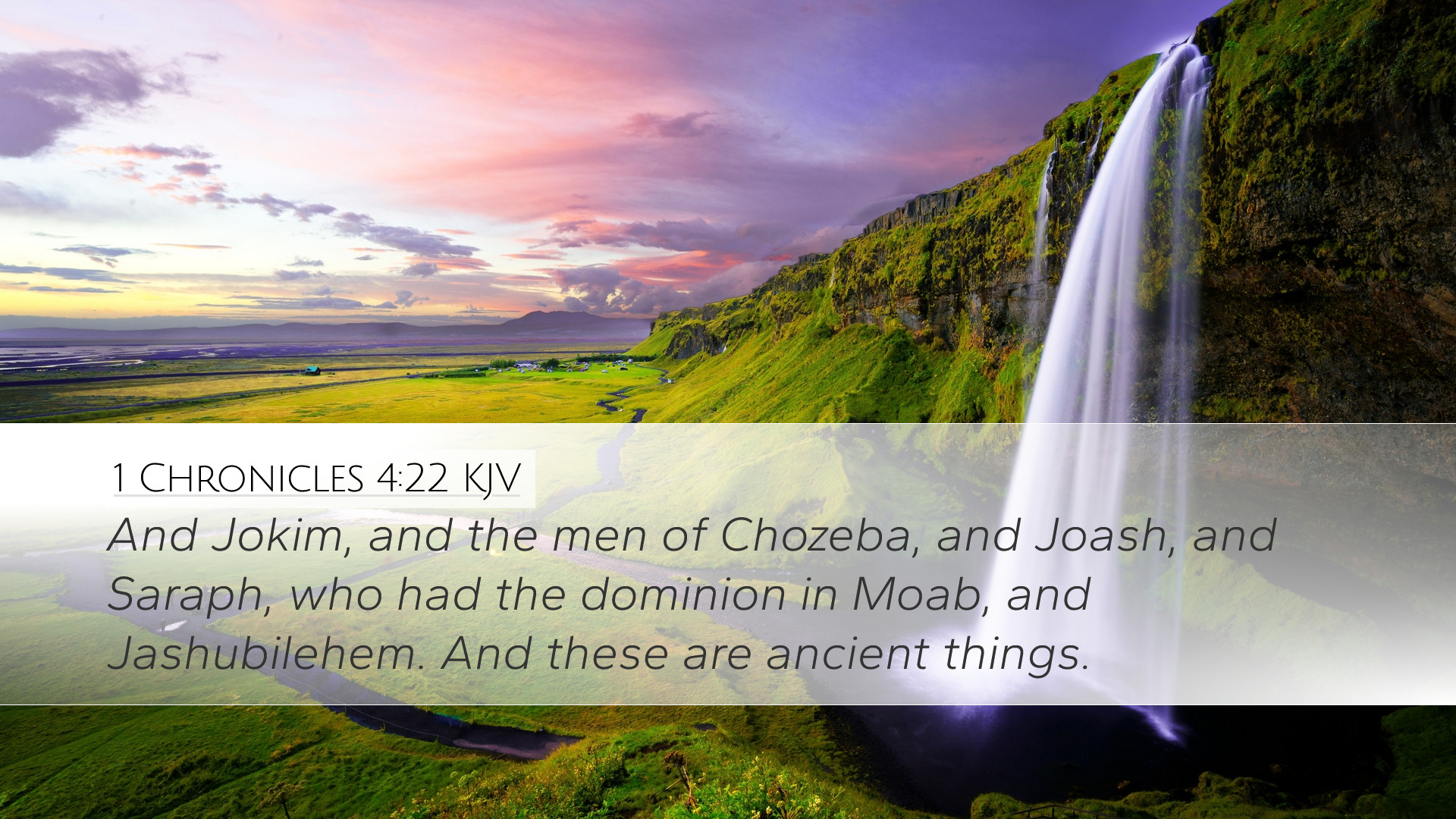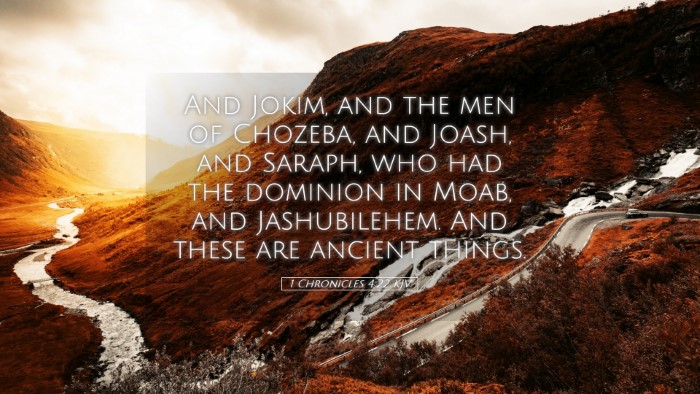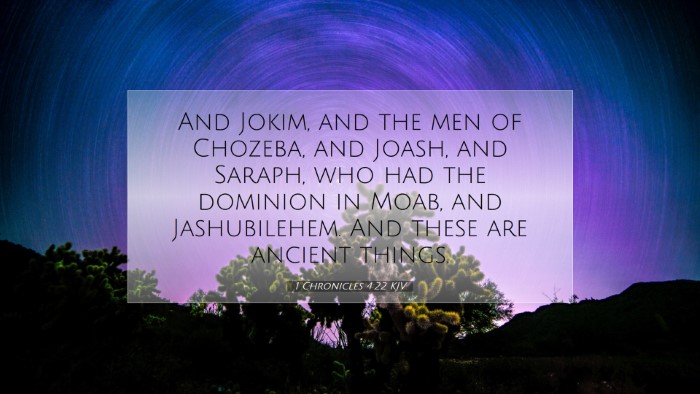Old Testament
Genesis Exodus Leviticus Numbers Deuteronomy Joshua Judges Ruth 1 Samuel 2 Samuel 1 Kings 2 Kings 1 Chronicles 2 Chronicles Ezra Nehemiah Esther Job Psalms Proverbs Ecclesiastes Song of Solomon Isaiah Jeremiah Lamentations Ezekiel Daniel Hosea Joel Amos Obadiah Jonah Micah Nahum Habakkuk Zephaniah Haggai Zechariah MalachiChapter
1 Chronicles 1 1 Chronicles 2 1 Chronicles 3 1 Chronicles 4 1 Chronicles 5 1 Chronicles 6 1 Chronicles 7 1 Chronicles 8 1 Chronicles 9 1 Chronicles 10 1 Chronicles 11 1 Chronicles 12 1 Chronicles 13 1 Chronicles 14 1 Chronicles 15 1 Chronicles 16 1 Chronicles 17 1 Chronicles 18 1 Chronicles 19 1 Chronicles 20 1 Chronicles 21 1 Chronicles 22 1 Chronicles 23 1 Chronicles 24 1 Chronicles 25 1 Chronicles 26 1 Chronicles 27 1 Chronicles 28 1 Chronicles 29Verse
1 Chronicles 4:1 1 Chronicles 4:2 1 Chronicles 4:3 1 Chronicles 4:4 1 Chronicles 4:5 1 Chronicles 4:6 1 Chronicles 4:7 1 Chronicles 4:8 1 Chronicles 4:9 1 Chronicles 4:10 1 Chronicles 4:11 1 Chronicles 4:12 1 Chronicles 4:13 1 Chronicles 4:14 1 Chronicles 4:15 1 Chronicles 4:16 1 Chronicles 4:17 1 Chronicles 4:18 1 Chronicles 4:19 1 Chronicles 4:20 1 Chronicles 4:21 1 Chronicles 4:22 1 Chronicles 4:23 1 Chronicles 4:24 1 Chronicles 4:25 1 Chronicles 4:26 1 Chronicles 4:27 1 Chronicles 4:28 1 Chronicles 4:29 1 Chronicles 4:30 1 Chronicles 4:31 1 Chronicles 4:32 1 Chronicles 4:33 1 Chronicles 4:34 1 Chronicles 4:35 1 Chronicles 4:36 1 Chronicles 4:37 1 Chronicles 4:38 1 Chronicles 4:39 1 Chronicles 4:40 1 Chronicles 4:41 1 Chronicles 4:42 1 Chronicles 4:43

